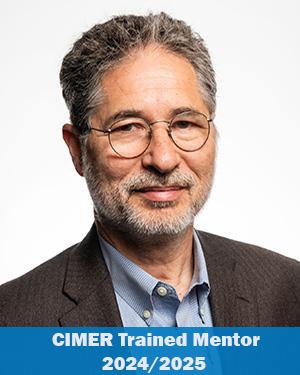Research News
06/15/2018
AHA Awards Cleveland Clinic $3.7 Million for Atrial Fibrillation Research
The four-year, competitive award will support three synergistic projects aimed at improving outcomes for patients with atrial fibrillation (AFib)

The American Heart Association (AHA) has awarded Cleveland Clinic a $3.7 million grant for atrial fibrillation research. The four-year, competitive award will support three synergistic projects aimed at improving outcomes for patients with atrial fibrillation (AFib), a common heart rhythm abnormality.
Cleveland Clinic was selected as one of six research institutions across the country to receive funding from AHA's new AFib Strategically Focused Research Network (SFRN). Led by Mina Chung, MD, a multidisciplinary team will focus on questions in AFib care, seek new therapies, and test lifestyle change programs that show promise in preventing worsening AFib.
There are approximately 6 million people in the U.S. living with AFib, an irregular beat in the heart's upper chambers. That number is expected to rise to 12.1 million by 2030. When untreated, AFib doubles the risk of heart-related death and increases the chance of a stroke fivefold.
"Once it starts, AFib typically worsens over time, with episodes becoming longer and less likely to stop on their own," said Dr. Chung, director of Cleveland Clinic's Center of Excellence for Cardiovascular Translational Functional Genomics. "Despite intense effort, there are few effective and safe therapies for AFib. With this significant AHA support, we are focusing on developing novel strategies for preventing the disease and its progression. Our new center will use molecular data to find, choose and personalize targets for preventive therapies."
To be named the Sarah Ross Soter Center for AFib Research, the Cleveland Clinic site will focus on clinical and basic science projects designed to prevent AFib development and progression. A native of Columbus who lives in Palm Beach and suffers from AFib, Mrs. Soter selected the center and is funding it with a $5 million gift along with her husband, Bill. A portion of the gift will support collaborative grants across the network.
The Cleveland Clinic team will study the relationships between genes, aging and metabolism and use patient-specific cell models to find new therapies and ways to tailor them to individual patient needs. The team will also test programs that may empower patients to control their AFib with diet/nutrition and exercise, and a diabetes drug, metformin, that has shown promise in delaying the condition. The projects include:
- "Gene-Aging-Metabolism Interaction in AFib Pathogenesis," led by Jonathan Smith, PhD, will build on the team's previous AFib genomics research to identify new molecular pathways that can be targeted with drugs. They will explore how aging and metabolism along with certain identified genes may work together to cause the condition.
- "Targeting Risk Interventions and Metformin for AFib," led by Dr. Chung, is a new clinical trial to test the effectiveness of two therapies to reduce AFib progression. The team will enroll 270 participants with pacemakers and implantable cardioverter-defibrillator devices to compare lifestyle modifications with and without metformin. The research is based on earlier studies suggesting weight loss and exercise, as well as metformin, are associated with reduced AFib risk. The study will include collaborators in cardiac electrophysiology and pacing, preventive cardiology, endocrinology and sleep medicine.
- "Multi-omic analyses of atrial metabolism, electrophysiology and AFib progression" is a translational population health project led by David Van Wagoner, PhD, with key collaborator John Barnard, PhD. In an effort to develop personalized treatments, the researchers will characterize AFib subtypes and identify biological signatures of disease progression to better understand patient-specific responses to various therapies.
The team, which includes specialists from Cleveland Clinic Lerner Research Institute and the Miller Heart & Vascular Institute, has been working collaboratively for nearly 20 years. They have published more than 40 major papers together, making significant contributions to the field of AFib mechanisms and cardiac genomics. Smith is chair of Molecular Medicine at Lerner Research Institute and the Geoffrey Gund Endowed Chair for Cardiovascular Research and Van Wagoner is a staff member in Molecular Cardiology at the Lerner Research Institute. Barnard is head of Biostatistics, Genetic Epidemiology and Bioinformatics in the Department of Quantitative Health Sciences in the Lerner Research Institute.
"We are so pleased that the AHA selected us to participate in this research consortium to take our work from the lab back to the patients' bedside to prevent the worsening of this disease," said Dr. Chung. "New therapies for AFib are critical and we are hopeful this award will have an extraordinary impact by leading to improved, personalized therapies for patients with this debilitating condition."
In its entirety, the AHA's more than $28 million AFib Strategically Focused Research Network will enhance the understanding of the causes, biology, pathophysiology and epidemiology of AFib to improve patient outcomes.
Featured Experts
News Category
Related News
Want To Support Ground-Breaking Research at Cleveland Clinic?
Discover how you can help Cleveland Clinic save lives and continue to lead the transformation of healthcare.
Give to Cleveland Clinic

